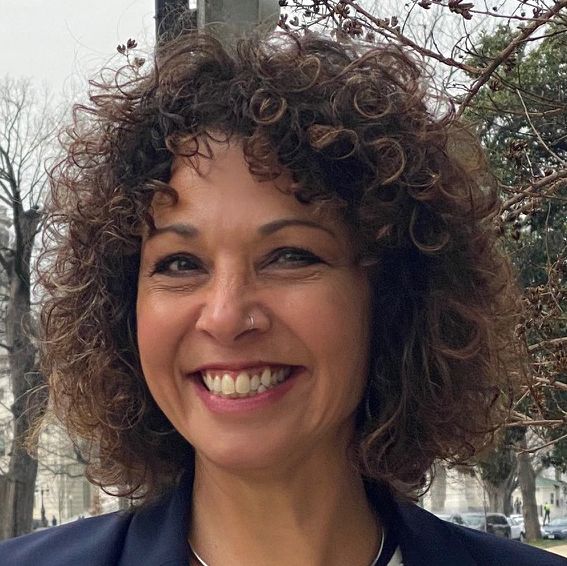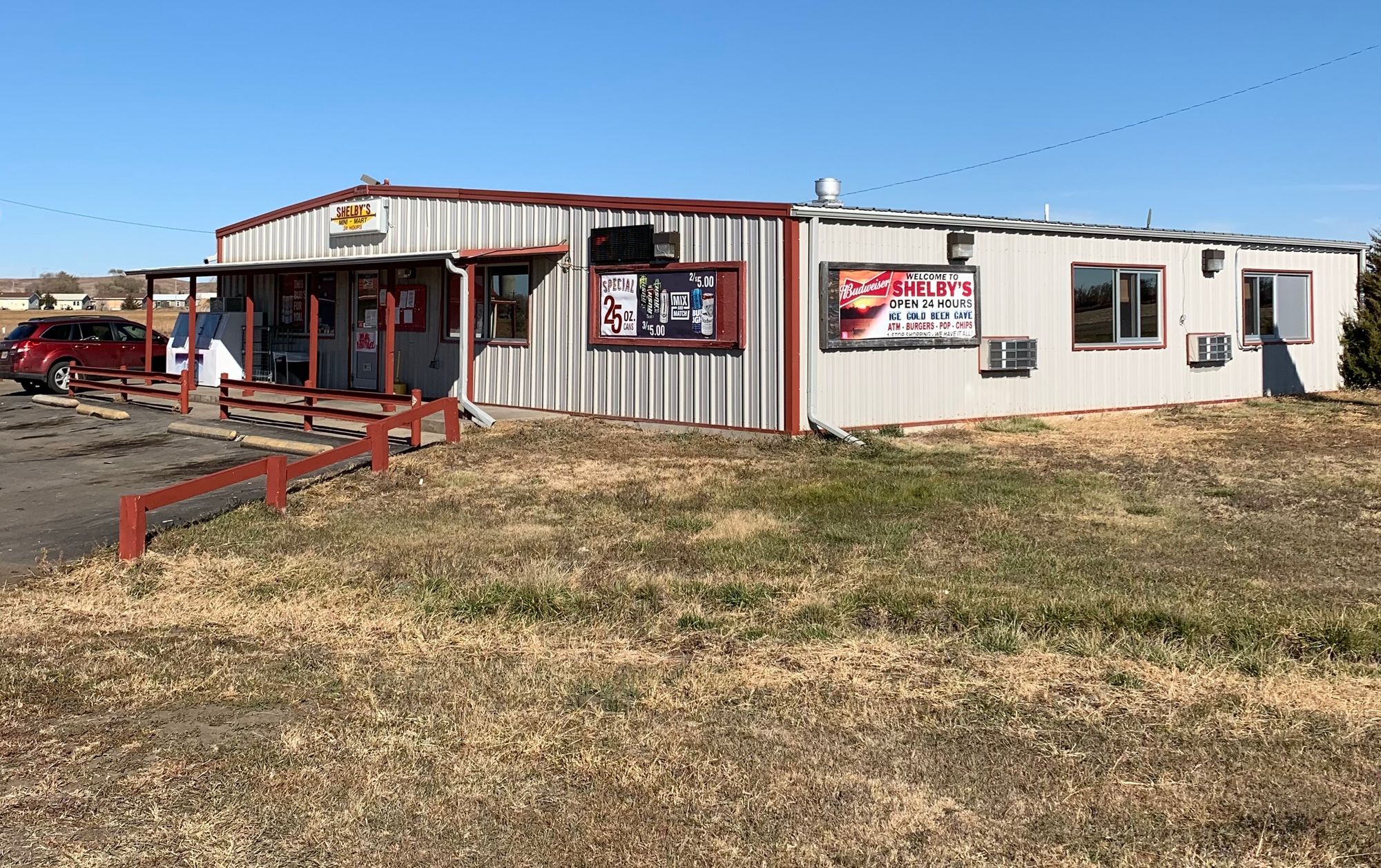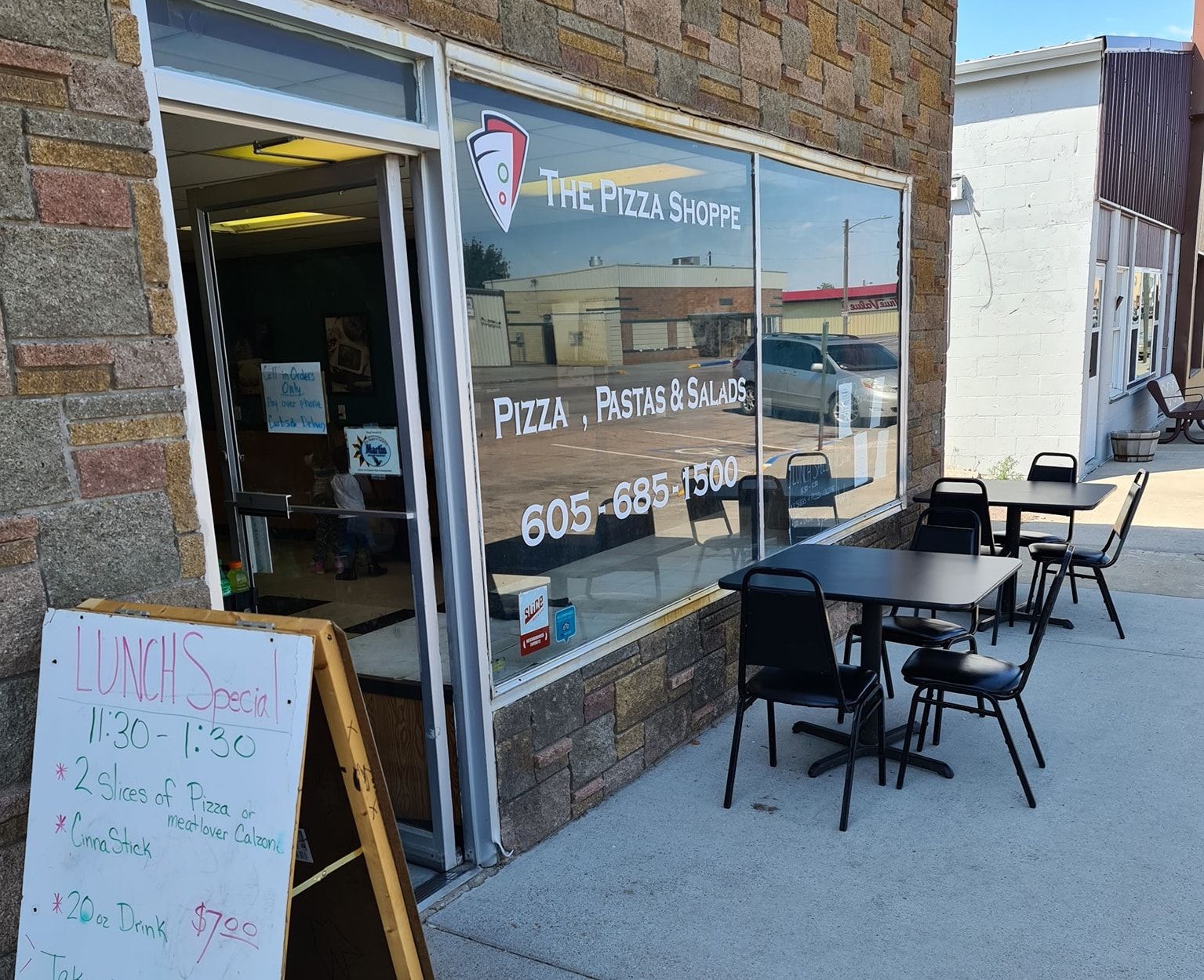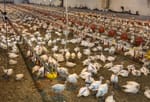The COVID-19 pandemic has devastated small businesses on Native American reservations in South Dakota as tribal councils have mandated business closures, banned gatherings and told tourists to stay away to prevent COVID-19 from spreading in their vulnerable communities.
Tribal governments took aggressive action against the spread of COVID-19 early on during the pandemic. Some reservations closed their borders to visitors, and each of the reservations has temporarily closed businesses at times and banned large gatherings. While such actions were deemed necessary to limit the spread of COVID-19, they also dramatically slowed economic activity.
Privately owned small businesses in Native American communities across South Dakota have reported losing tens of thousands of dollars since the pandemic began. They also have had a difficult time accessing federal pandemic relief funds. Many business owners are worried their businesses will not survive the winter.
On the Pine Ridge Indian Reservation, a pizza shop owner is reeling from three reservation-wide lock downs that forced him to temporarily close. In Mission, on the Rosebud Indian Reservation, a clothing and sporting goods store owner said a fall without school sports added to losses after a summer that saw few shoppers. And a convenience store owner on the Crow Creek Reservation said her business has been operating at a loss and is worried her store will not last another six months.
A recent nationwide survey conducted by the Minneapolis Federal Reserve Bank revealed the depth of the financial woes caused by the pandemic. Two thirds of reservation-based business owners in the U.S. reported revenue declines of 20% or more; one in six businesses reported losing all of their revenue as of mid-July; and roughly 20% of businesses did not have enough cash on hand to stay open for more than three months.
Fears are growing among economic development officials that Native American communities in South Dakota could lose many of the few businesses they have, said Tawney Brunsch, CEO of Lakota Funds, a non-profit community development financial institution on the Pine Ridge reservation. Pine Ridge could potentially lose some of its grocery stores, which would be devastating to tribal families, Brunsch said.

“The pandemic is going to have a more amplified impact on our communities because we have so few businesses to begin with,” Brunsch said. “On Pine Ridge, there are three grocery stores on all of the 3,500 square miles.”
Businesses on reservations faced substantial barriers to success long before COVID-19. They serve small, scattered populations burdened by entrenched poverty and there is limited investment capital available to entrepreneurs. Reservations also tend to have rough roads and inadequate water systems.
Tribal efforts to slow the spread of COVID-19, while initially successful, added to the hardships facing businesses.
“We have had tribal ordinances that have limited our hours. We are a 24-hour store, and we had a lot of walk-up traffic after midnight, but we don’t get that anymore,” said Rosie Pickner, a manager and co-owner of the Shelby’s Mini Mart in Fort Thompson on the Crow Creek Indian Reservation.
Pickner, an enrolled member of the Crow Creek Sioux Tribe, estimated that the family-owned store lost $4,000 to $5,000 in sales per week due to tribal efforts to control the spread of COVID-19. The business has been operating at a loss and probably won’t last another six months, she said.
“I’m not confident at all about the future,” Pickner said. “Savings only last so long.”

Reservation businesses face many hurdles
Through July, the aggressive steps taken by tribal governments to battle COVID-19 appeared to have been successful. Reservation communities saw relatively few new cases of the disease, and tribal governments began lifting some restrictions. Then, in August, as coronavirus cases started to climb elsewhere in South Dakota, reservations began to see similar increases in COVID-19 cases.
As of Nov. 4, each of the nine reservations in South Dakota was considered to have substantial community spread of COVID-19, according to the state Department of Health. Though Native Americans make up about 9% of the state population, indigenous people have accounted for roughly 13% of South Dakota coronavirus cases and 16% of deaths.
With cases of coronavirus on the rise heading into fall, tribal governments started reimposing strict lockdown measures. Businesses that were just beginning to get back on their feet were knocked back down.
On the Rosebud Indian Reservation, the Rosebud Sioux Tribe imposed a reservation-wide lockdown on Oct. 25 which came on top of a stay-at-home order that has been in place since March. Schools on the Rosebud Reservation have been teaching remotely and have canceled sports. As of Nov. 4, the tribe reported 11 deaths from COVID-19.
The loss of high school sports was a severe blow to Stadium Sports & Apparel, a clothing and sporting goods store in Mission on the Rosebud reservation.
Owner Shelly Henderson said her business has also been hit hard by three separate reservation-wide lockdowns and temporary tribal rules limiting the number of customers that can be in any business at one time. A tribal stay-at-home order has reduced foot traffic into the store as well. Henderson did not have precise data on the store’s decline in sales compared to 2019, but she said the situation is becoming dire. Sales will probably continue to be down because the Rosebud tribal council has extended its stay-at-home order through December.
“I’m very worried about the future. If I had to rank my worry on a scale of one to 10, it would be a seven,” Henderson said.
Another problem Henderson faces is getting merchandise into the store. The pandemic slowed down the manufacturing and shipping of clothing and shoes all over the world. On Nov. 4, Henderson said she was trying to return a shipment of unwanted sandals and football cleats that arrived at Stadium Sports & Apparel at the end of October.
“That’s going to be like pulling teeth. It’s just about a battle every day with something different,” Henderson said.
Henderson also is a part-owner in a Valentine, Nebraska screen printing and embroidery business that specializes in T-shirts, sweatshirts and jackets for Rosebud reservation sports teams and tournaments. Because sporting events and tournaments were canceled, there were no orders for shirts.
Henderson’s business also prints shirts for the annual Rosebud Fair and Wacipi, which was canceled in 2020 due to COVID-19.
“That put a huge damper on my business,” Henderson said.
Native American business owners have also faced disadvantages when applying for federal small-business support programs created by Congress as part of the CARES Act. One of the biggest determining factors for small businesses seeking federal relief was a close relationship with their bank. But relatively few Native American business owners, about one in three, reported having a strong relationship with their lenders, according to the Minneapolis Federal Reserve Bank survey.
Another issue is that many Native-owned businesses are informally organized. Some businesses operate out of a home or garage, others don’t have employees, and most rely on word of mouth to generate business. The owners of such businesses also can struggle to maintain all of the paperwork and tax information needed to apply for federal programs, Brunsch said.
“There were just certain requirements in both the Paycheck Protection Program and Economic Injury Disaster Loans that were gonna make this super hard for our businesses to qualify,” Brunsch said.
At the national level, roughly 22% of the reservation-based business owners surveyed by the Minneapolis Fed reported receiving a Paycheck Protection Program Loan. Meanwhile, only 15% of businesses on reservations received Economic Injury Disaster Loans. There is no data yet on how many businesses on South Dakota reservations were able to access federal pandemic relief programs.
Not all of the news is bad, however. Despite huge losses in revenue, nearly 60% of the businesses surveyed by the Minneapolis Fed reported that they had not instituted layoffs and did not expect to before 2021.
Stadium Sports & Apparel was able to secure a Paycheck Protection Program loan, Henderson said. She also has applied for assistance from the state’s new Small Business COVID Interruption Program.
On Oct. 5, the state Legislature approved a plan to use $580 million of the $1.25 billion Congress gave to South Dakota to provide relief for small businesses as part of the CARES Act.
As of October, not one of the businesses and individuals among the $17.4 million loan portfolio managed by Lakota Funds was delinquent on its payments. Many clients of Lakota Funds are ranchers who had an easier time accessing pandemic relief payments. The organization’s staff have been working hard to stay in touch with their clients and offer help when needed, Brunsch said. Some businesses are in better shape than others, she said.
“We know our businesses, and we’re reaching out to them. We’re checking to see how they’re doing,” Brunsch said.

Pine Ridge business owner innovates to survive
Many business owners on the Pine Ridge reservation, such as Warren Peterson, owner of The Pizza Shoppe in Martin, were looking forward to strong summer sales in 2020.
Then, in March of 2020, sales dropped way off at The Pizza Shoppe as the reservation economy essentially shut down due to COVID-19. The Pizza Shoppe’s revenues have declined by $20,000 compared to 2019, Peterson said.
To keep his business afloat, he had to jump on every opportunity for assistance, innovate where possible and put off plans to hire.
“If I didn’t seek every avenue that I did, I probably wouldn’t be here anymore,” Peterson said.
The COVID-19 pandemic affected every piece of Peterson’s business. Not only did sales drop, but he eventually had trouble finding basic ingredients.
“I had to find other ways to get cheese and pepperoni, the staple ingredients for a pizza place,” Peterson said. “I would have a hard time getting a hold of them because the manufacturing of food products in America basically stopped.”
Still, The Pizza Shoppe was in a pretty good position to weather the pandemic, thanks to Peterson’s efforts to modernize the business. He had purchased a new, internet-based point-of-sale system in 2018 and was able to quickly close off The Pizza Shoppe’s lobby and switch solely to curbside service. Peterson also required customers to pay for their pizzas online through their smartphones, making business safer by minimizing personal contact.
Being quick to seek financial assistance was also a big help, Peterson said. He was one of the relatively few Native American business owners that was able to secure financial assistance from federal pandemic relief programs under the CARES Act.
“As soon as I saw that there was probably a big issue coming down the road, I got on the computer and looked at every avenue that I could to try and get funding outside of just the restaurant,” Peterson said.
He was the first business owner in Martin to apply for the Paycheck Protection Program and secured an Economic Injury Disaster Loan through the Small Business Administration. Peterson also looked beyond government assistance and used the crowdfunding website GoFundMe to ask for donations. He raised more than $1,600 through the online platform.
“That was something that I never thought I would ever do,” Peterson said.

Federal assistance, fundraising and switching to curbside pickup have helped Peterson build up a cash reserve that he hopes will keep The Pizza Shoppe afloat for the next three months.
Though South Dakota’s Native American communities’ economic situation is dire, Brunsch said, the pandemic may hold some silver linings.
Reservation populations and tribal governments have developed a renewed interest in local businesses, and there is a renewed focus on making reservations more self-sufficient. Once the pandemic ends, the new focus on building resilient communities could translate into more money being available to help entrepreneurs get businesses off the ground.
“Maybe we’re going to understand now that businesses need to be more centrally located, that we need more of them, that each district, at the very least, should have access to the same type of basic needs such as grocery stores and gas stations,” Brunsch said. “Lakota Funds is doing the business of lending, but we need more capital. We need more capacity.”




